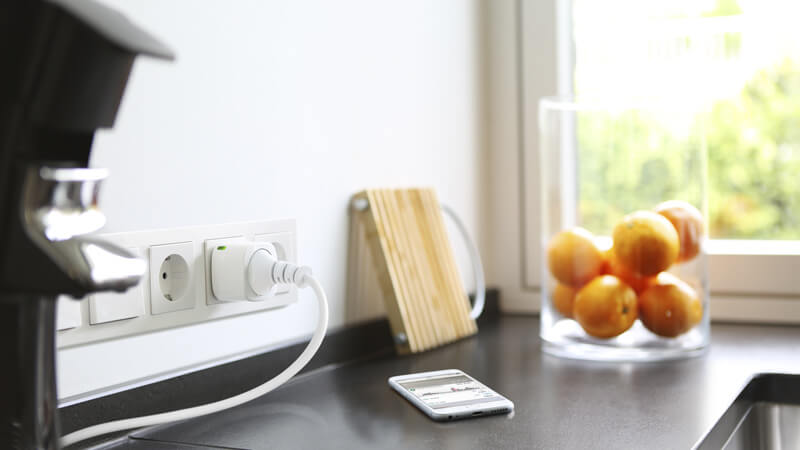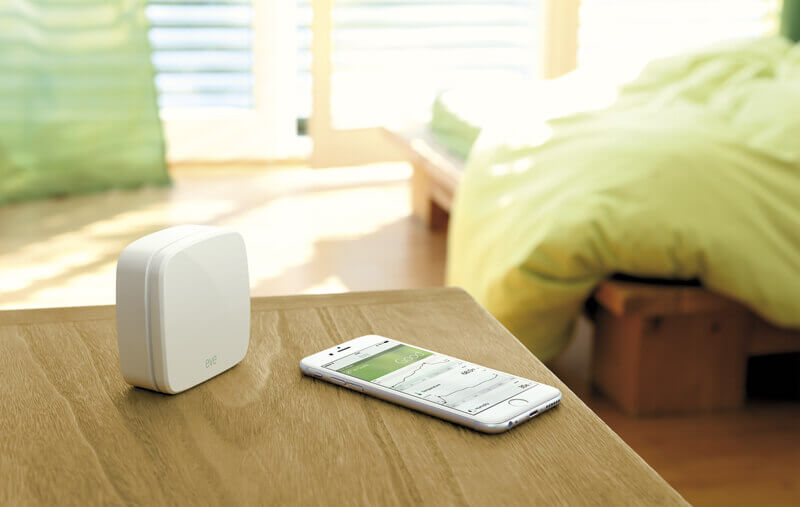It’s well over a year now since Apple announced HomeKit, its set of tools for developers to allow them to develop ‘smart home’ gadgets that work with the iPhone and iPad.
It was supposed to be the starting gun for a raft of home automation products which would do everything from allow you to turn lights on and off remotely to helping you keep your home safe and secure, whether you’re inside or thousands of miles away.
So what happened? The software development kit (SDK) became available to developers with the release of the beta version of iOS 8 in June 2014, but it was only with the release of iOS 8 in September that iPhones were able to make use of it. But that was just a minor delay. A bigger problem was that while developers and manufacturers like Elgato were working hard to bring Apple’s vision to market, Apple itself seemed to be dragging its heels. It didn’t tell developers what standards their products would have to adhere to in order to gain the all-important MFi (made for iPod/iPhone/ iPad) certification until the end of the year. And until it did, manufacturers couldn’t finalize their designs. And then, once they had submitted them for approval, they had to wait until Apple rigorously tested them.
Another few weeks passed until, at the Consumer Electronics Show in Las Vegas, three companies – Elgato, iHome, and iDevices – announced HomeKit products. But none would ship before the middle of the year. Why?
One report put it down to the MFi specification. HomeKit devices can use Bluetooth LE (Low energy) or Wi-Fi to connect to other devices. According to Forbes, Apple requires MFi HomeKit manufacturers to use security protocols one expert described as ‘bleeding edge.’
‘Apple is requiring device makers using both WiFi and Bluetooth LE to use complicated encryption with 3072-bit keys, as well as the super secure Curve25519, which is an elliptic curve used for digital signatures and exchanging encrypted keys,’ reported Forbes. And while complying with the protocols wasn’t too much of a problem for Wi-Fi devices, those using Bluetooth LE experienced significant lags while they processed the encrypted data. And no one wants to wait half a minute after they press a switch for the lights to come on.
Workaround
Even following the release of iOS 9 and the iPhone 6s and 6s Plus in September 2015 didn’t do much to kickstart interest in Apple-product led home automation. So far, according to Forbes, Elgato is the only company which has found a solution to the problem of using Bluetooth LE with MFi-certified HomeKit devices, thanks to a workaround it now plans to market to other manufacturers.
And it may not just be Bluetooth security issues that are causing delays. The Register reported in July that Apple is insisting HomeKit manufacturers use ‘Apple-approved coprocessors and firmware’ in their devices and that ‘engineers must effectively redesign their products to incorporate the mandatory HomeKit chips and firmware, and pass Apple’s strict checklist of requirements.’ Dictating the precise components third party manufacturers use in their products is a step further than even Apple normally goes, but it would make sense if it is genuinely concerned about Bluetooth LE security.
Others claim that Apple has simply lost interest in HomeKit and has instead been focusing on Apple Watch. Some evidence for that view was provided at Apple’s Worldwide Developers’ Conference back in June, when HomeKit merited little more than a by-the-by during the two-hour session. What we learned was that Apple would add support for more classes of gadget, such as window shades, and that in iOS 9, you’ll be able to control HomeKit devices remotely through iCloud and from a Watch. There was no mention, however, of a dedicated Home app in iOS 9, nor of Apple-branded HomeKit devices, both of which have been rumoured.
Whatever happened to Apple's HomeKit? Did they lose interest in home automation?
http://t.co/mZUDA3iifX pic.twitter.com/IYWUkvuFQb
— TapSmart (@TapSmart) October 8, 2015
Lost interest?
As for solving that Bluetooth security problem, Apple might just be doing the rest of the industry a favor. ‘The industry has not really cared about security,’ security expert Diogo Monica told Forbes. ‘With the Internet of Things happening, I think Apple’s HomeKit standard enforcing manufacturers to adopt this standard is amazing for the final consumer.’
Is Apple simply being fastidious about security and interoperability? Or has it lost interest? Both are possible, and the company has form to support both explanations in the recent past. I sense that the explanation is closer to the former than the latter, though. That Apple discovered issues with Bluetooth LE it hadn’t anticipated and that making everything work turned out to be trickier than it expected. It would be odd, given that connected devices and home automation present such huge opportunities for Apple’s most important product, the iPhone, if the company simply lost interest. Time will tell if there will be a renewed push towards home automation via HomeKit.


